 100 YEARS AGO...IN MUSICAL AMERICA (56)
100 YEARS AGO...IN MUSICAL AMERICA (56)
August 22, 1914
Page 1
LOCAL MANAGERS THROUGHOUT COUNTRY OPTIMISTIC OVER MUSICAL OUTLOOK
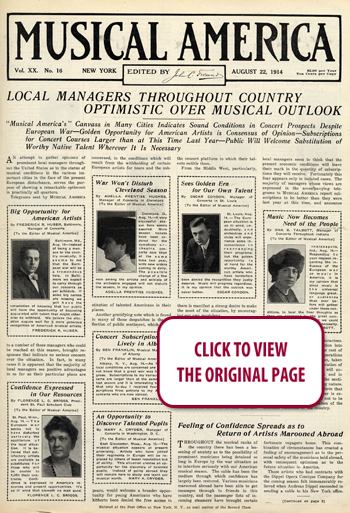
AN attempt to gather opinions' of prominent local managers throughout the United States as to the status of musical conditions in the various important cities in the face of the present European disturbance, serves the purpose of showing a remarkable optimism in practically all quarters. Telegrams sent by MUSICAL AMERICA to a number of these managers who could be reached at this season, brought responses that indicate no serious concern over the situation. In fact, in many cases it is apparent that the majority of local managers see positive advantages in so far as their particular plans are concerned, in the conditions which will result from the withholding of certain European artists for tours and the substitution of talented Americans in their places.
Another gratifying note which is found in many of these despatches is the reflection of public sentiment, which it appears, would welcome a broader opportunity for young Americans who have hitherto been denied the free access to the concert platform to which their talents entitle them. From the Middle West, particularly there is manifest a strong desire to make the most of the situation, by encouraging our own musicians.
While news is beginning to come in from the war-stricken territory there is as yet little definite knowledge at hand as to the personnel of next season’s musical artists. Undoubtedly a number of the prominent male artists who were scheduled to appear here will be detained, some of them being obliged to enter the military ranks. It is doubtful, however, that the women will be materially affected. This condition will probably affect some of the orchestras and certainly will make a big difference to the operatic companies. But there will be no shortage of music in America next season.
In some quarters there appears to be doubt as to the effect of the temporary increase in the cost of living which has resulted from the strife abroad. Certain local managers seem to think that the present economic conditions will leave their mark .in the quantity of subscriptions they will receive. Fortunately this fear appears only in isolated cases. The majority of managers whose views are expressed in the accompanying telegrams to MUSICAL AMERICA report subscriptions to be better than they were last year at this time, and prospects of record-breaking guarantees.
President Wilson’s investigation into the unreasonable increase in the cost of living brought about by corporations which have, without justification, taken the war as a pretext for the elevation of prices for living commodities, will undoubtedly relieve the situation and in financial and business circles the sentiment is of a decidedly reassuring nature. So there is every reason to believe that the isolated cases in which fear is expressed in this connection are not to be accepted as a reliable indication of the economic condition of the country.
Big Opportunity for American ArtistsBy FREDERICK R. HUBER, Baltimore, Manager of Concerts[To the Editor of Musical America]Baltimore, Md., Aug. 14−lnstead of being a menace to the country musically, it seems to me that the European war will be a tremendous help. In Baltimore we expect to carry through our concerts as per schedule. If some big names are missing we will have the consolation of knowing that our public will have the opportunity of becoming acquainted with talent that might otherwise be withheld. We believe the situation augurs well for a more generous recognition of American musical artists.
Confidence Expressed in Our Resources!By FLORENCE L. C. BRIGGS, President St. Paul Schubert Club[To the Editor of Musical America]St. Paul, Minn., Aug. 14. −The European war seems not to have disturbed seriously the equilibrium of the local situation. It is believed that satisfactory artists are available substitutes for those who will be unable to fulfill their contracts. Confidence is expressed in America’s resources and present opportunities. It’s an ill wind that bloweth no man good.
War Won’t Disturb Cleveland SeasonBy ADELLA PRENTISS HUGHES, Manager of Concerts in Cleveland[To the Editor of Musical America]Cleveland, O., Aug 14.−A very successful season here seems assured. More season tickets have been ordered for the symphony orchestra concerts now than the same time last year, with new' orders coming in daily. The possible change of a few men among the artists and. soloists of the orchestra engaged will not disturb the season, in my opinion.
Concert Subscriptions Lively in AlbanyBy BEN FRANKLIN, Musical Manager of Albany[To the Editor of Musical America]Albany, N. Y., Aug. 14.−As far as local conditions are concerned one would not know that a great war was in progress. Subscriptions to my various concerts are larger than at the same time last season and it is interesting to note that only today I received four subscriptions from patrons to my Albany concerts who are now abroad.An Opportunity to Discover Talented PupilsBy MARY A. CRYDER, Manager of Concerts in Washington, D. C.[To the Editor of Musical America]East Gloucester, Mass., Aug. 13.−The musical situation appears at present promising. Artists who have joined their regiments in Europe will be replaced by others of lesser reputation but of ability. This situation creates an opportunity for the discovery of talented pupils. Instead of going abroad they will remain here to study and learn our musical worth.Sees Golden Era for Our Own Talent!By OSCAR CONDON, Manager of Concerts in St. Louis[To the Editor of Musical America]St. Louis, Aug. 14. −The European situation is an ill wind undoubtedly, and orchestras and clubs will experience some inconvenience in rearranging their programs, but the golden opportunity is at hand for the worthy American artists who have heretofore been denied the recognition they justly deserve. Music will progress regardless It is my opinion that the outlook was never better.Now Becomes Need of the PeopleBy ONA B. TALBOTT, Manager of Concerts Throughout Indiana[To the Editor of Musical America]Indianapolis, Ind., Aug. 14.− Responding to your request regarding the influence of the European war on music in America, it is my opinion that since music is the universal language greater audiences than ever before will gather under these conditions, to hear the finer thoughts as they are expressed by the great composers. The time was when we could live without it. To-day it is a necessity.
Feeling of Confidence Spreads as to Return of Artists Marooned Abroad
THROUGHOUT the musical ranks of the country there has been a lessening of anxiety as to the possibility of prominent musicians being detained so long in Europe by the war situation as to interfere seriously with our American musical season. The cable has been the medium through which confidence has largely been restored. Various musicians marooned abroad have been able to get messages through to friends in this country, and the passenger lists of incoming steamers have brought certain fortunate voyagers home. This combination of circumstances has created a feeling of encouragement as to the personal safety of the musicians held abroad, with consequent optimism as to the future situation in America.
Those artists who had contracts with the Dippel Opera Comique Company for the coming season felt immeasurably relieved when Andreas Dippel succeeded in sending a cable to his New York office. Mr. Dippel, when war was declared, was isolated with many others in Carlsbad, Austria. He succeeded in reaching Kaltenleutgeben, near Vienna, where his wife and mother have their Summer home, and, as soon as it was possible to secure transportation, Mr. Dippel took his wife and mother to Cassel, Germany. Mr. Dippel is now in Rotterdam and will sail for New York City the latter part of this month. He advised his New York office that the season of operetta would be given as already announced.
As most of the Metropolitan Opera dignitaries are in Europe and not within communication, it is difficult to arrive at the real status of this company’s prospects. The general belief is, however, that the war’s interference with the Metropolitan season will be slighter than first imagined. So far there has been news of but one member of the company who has been drawn into the combat.
Goritz in German Army
Advices to the New York Deutsches Journal on August 14 stated that Otto Goritz had communicated with friends in New York requesting them to sublet his apartment in this city and to place his furniture in storage. This indicates that the popular German baritone, whose Beckmesser, Alberich, Fiddler and other rôles are among the Metropolitan’s most admired impersonations, is really detained abroad and engaged at the present moment in fighting for the Fatherland.
Until further information comes as to the loss of other members of the German wing, there is no reason to believe that the German productions will be materially interfered with, as was first supposed. Rudolf Berger may be fighting in the Austrian army, but Jaques Urlus is a Hollander and thus neutral. The plans of the women in the company are not affected by the war, excepting as to securing passage to this country, which is daily becoming an easier matter. The German men in the chorus may no doubt be prevented from coming over, but the replacing of them would not be an impossibility. Several of the German operas dispense with a chorus, including “Das Rheingold,” “Walkűre” and “Siegfried.” As for the orchestra, its membership is limited automatically to citizens of the United States by the rule of the musical union that only our citizens are eligible to its ranks.
Feels Certain All Artists Will AppearBy MAI DAVIS SMITH, Manager of Concerts in Buffalo[To the Editor of Musical America]Buffalo, N. Y., Aug. 13.−I feel certain that by the time I am ready to begin my concerts, the latter part of October, all my artists will be in this country. I am not worried and if a few of the great ones are detained in Europe my clients will be satisfied. I am sure that I will, as in the past, give them the best that can be obtained in America.No Fear for Local Conditions in OmahaBy EVELYN HOPPER, Manager of Omaha Concerts[To the Editor of Musical America]Omaha, Neb., Aug. 14.−I have no fear that local musical conditions will be seriously affected by the detention of artists in Europe, But there is no question that local managers will face a serious problem in raising guarantees if the absolute necessities of life remain at the present advance of from five to fifty per cent.Big Year Predicted in Michigan Music!By JAMES E. DEVOE, Manager of Detroit Concerts[To the Editor of Musical America]Westerville, N, Y., Aug. 14.−Notwithstanding wars and rumors of wars, I believe it is going to be a big year in our section.New England Concert Series Not Cancelled!By ALBERT M. STEINERT, Manager of New England Concerts[To the Editor of Musical America]Providence, R. I., Aug. 13−I am unable to express an opinion regarding the future of the concert business in this country. Under present conditions, giving concerts in normal times is certainly a difficult enough proposition in itself. I expect to give concerts in Providence, Portland and Worcester as originally planned, providing the artists are able to fill their engagements.No Uneasiness Is Felt in ColumbusBy ELLA MAY SMITH, President of the Woman’s Music Club[To the Editor of Musical America]Columbus, 0., Aug. 14.−No uneasiness is felt here concerning Music Club artists engaged for the season. We expect Fremstad, Culp, Goodson, Dufau, Ingram, Thalberg, Leopold Kramer and the Philharmonic, Minneapolis and Cincinnati Symphony Orchestras. Our club opens November 3 with Schumann-Heink, McCormack, Teyte, Burmeister,. Pavlowa, Ganz, Ware and Damrosch Orchestra expected, though some dates may be transposed. There are no concerts till October.
Otto Kahn Hopeful
Otto H. Kahn, chairman of the Metropolitan’s directorate, informed a MUSICAL AMERICA representative Tuesday afternoon that he fully believed the war would not prevent the Metropolitan from carrying through its season all right. As to whether it would affect the German schedule Mr. Kahn would not venture so decided an opinion, stating that it was too early to make a definite statement. He related that he is in cable communication with the Metropolitan staff abroad and expects to have definite information within two weeks. General Manager Gatti-Casazza is now in Venice, announced Mr. Kahn.
A cable to the New York Sun on August 17 stated that Geraldine Farrar was still in Munich.
Upon the return of Alf Hayman, the theatrical manager, he told of being in Paris when the order for the mobilization of French troops was given out. “I met on a Paris street that day William Guard, press representative of the Metropolitan Opera Company, and he asked me to lend him a sou so that he could buy a newspaper. Mr. Guard had plenty of money, yet he couldn’t spend any, because no one had any change to give for bills.”
Dinh Gilly, the Algerian baritone, who appeared in “Aida” as Amonasro on the closing night of the Covent Garden season, is one artist that the Metropolitan can rely upon for the opening of the season in November. Mr. Gilly will remain in London until the war blows over. Although he is a native of Algeria, a French colony, he is not likely to be pressed into military service unless matters are driven to the extreme.
Emmy Destinn is not likely to be detained by the war when the Metropolitan season opens. Mme. Destinn closed the Covent Garden season with a performance of “Aida” on Tuesday, July 28. She was to have left the next day for Bohemia to spend the rest of the Summer at her chateau in Strasz, near Prague. But when the war broke out Mme. Destinn instantly realized the seriousness of it and decided to remain in London at her residence in Regent’s Park, awaiting further developments. Her four servants were greatly surprised when she ordered them to unpack all the trunks filled with her wardrobe and historical relics.
Century Prospects Bright
There is no apprehension at the Century Opera House over the presence of some of the singers in Europe and the casts are made up for the first two or three weeks after the opening, which will occur on September 14, as planned. Agide Jacchia, the principal conductor, sails on August 21 from Italy. Others who will soon be under way and whose arrival is assured include Bergman, Kingston, Santley, Gough and Lenska. Kathleen Howard left on La France, August 15 and Alberta Rasch, the danseuse, came in this week aboard the Nieuw Amsterdam. The only member of the company for whom there is any concern is the Hungarian singer, Erzsl Guti.
Jacques Coini, artistic director of the Century, arrived on the Nieuw Amsterdam, Tuesday evening, along with Mrs. Coini and Miss Rasch. Only through the friendly aid of a German officer, whose brother had been associated with Coini at the Hanover opera, were they able to get out of Germany. Mr. Coini told of experiences in a journey from Kissingen to Brussels. A dozen times before his destination was reached the train in which he was traveling was stopped by German soldiers and searched. In Frankfort Coini was detained as a suspected French spy. He succeeded finally in convincing the authorities that he was a Hollander and not French, and that he was engaged in the peaceful pursuit of looking for opera stars abroad.
Franklin Riker, the New York tenor, who has been in Europe for an extended period, also docked from the Nieuw Amsterdam.
Another of the Nieuw Amsterdam’s, passengers, Dr. G. Dickinson, described the plight of stranded American students in Europe. “Thousands of young American girls who were sent abroad to study art and music have been reduced to terrible straits by the war. The pittances that have been sent them every week or month by their parents here have not reached them, and unless aid is shortly forthcoming they will be confronted with starvation. Hundreds of them can be seen around the American consulates crying for help. It was the most pathetic sight I ever saw or imagined.”
Manager Wagner’s Return
Charles L. Wagner, the New York musical manager, returned on Tuesday from the shortest and most exciting trip to Europe that he ever made. He left America on July 22 and returned on the Tunisian of the Allen Line to Quebec, sailing from Liverpool, August 5. The steamer ran without any lights whatever and when it was nearing the American shore the engines were stopped for twenty hours during a dense fog. The following day no less than six icebergs were sighted.
While in London Mr. Wagner got in communication with Rudolph Ganz, the pianist, who is in Switzerland and was reported to have joined the Swiss army. Mr. Ganz stated that he expected to be able to leave for America in time to fill his engagements this Fall, the first of which will be at the Worcester Festival, September 25.
Mr. Wagner spent a few days with John McCormack in London and went over with him to Ostend, where the latter sang successfully August 2 at an orchestral concert. The tenor granted nine encores, all in English. McCormack had planned to sail from Europe on October 17 to fill his first engagement in Louisville, Ky., October 26, but owing to the present conditions in Europe Mr. Wagner says that he will arrange 'earlier dates for McCormack, who will sail as soon as he can secure passage.
Another of Mr. Wagner’s artists, Riccardo Martin, is now in Milan, but Mr. Wagner has no fear but what he will be in America in time to fill his engagements. Alice Nielsen, one of Mr. Wagner’s most successful artists, is already in America, having sung at a large number of Summer Chautauquas.
Mr. Wagner could not say enough in praise of the treatment accorded the Americans in London. He said that even the railroads posted notices that they would cash checks and letters of credit for Americans desiring funds.
The steamer on which Mr. Wagner returned was crowded with about three times the number of passengers which it was equipped to handle, and Mr. Wagner said he was more afraid of germs than of the Germans during the return voyage.
Pavlowa Safe in England
After a most hazardous trip from St. Petersburg, Russia, across Germany and into the very heart of the war zone, Mlle. Anna Pavlowa, the Russian ballerina, has arrived in England and is now at her Summer home, “Ivy House,” just outside of London. The information was contained in cablegrams and letters sent by Mme. Pavlowa’s managing director, Max Rabinoff, now in London, to Pavlowa’s New York headquarters. It is stated that Pavlowa and her company will come to America for the tour opening at the Metropolitan Opera House, New York, November 3, even if Mr. Rabinoff has to charter part of a steamer flying a neutral flag. Pavlowa’s tours of Germany and Austria and the English provinces have been cancelled, and this will leave her free to come to America several weeks ahead of schedule.
Arrangements had been made between Pavlowa and Mr. Rabinoff to meet in Berlin for a conference on July 28. Pavlowa had concluded her St. Petersburg engagement a few days prior to the gathering of European war clouds. She left Russia three days before the suspension of the Berlin-St. Petersburg Express and arrived in Berlin before the mobilization order of the Kaiser was issued. She was informed that war was imminent and so asked for passports intending to go directly to London, by way of Brussels.
Arriving at the Belgian frontier the day the mobilization order was issued, Pavlowa was held for eighteen hours, but finally was allowed to enter Belgium, From that moment her course was impeded, for the train on which she traveled was stopped dozens of times by military and civilian officers. In Brussels she appealed to certain friends among the nobility and she received royal consent to pass unmolested. Her passports were honored in France and she arrived in Calais when the whole of Europe was beginning to teem with the war spirit. From Calais to Dover she and her company shipped on a packet, which she says was loaded to the rails with fleeing tourists. Once on British soil she and her company were safe, Some of Pavlowa’s scenery and costumes were lost in the journey, but she is having new effects made for the American tour.
Howard Wells Leaves Berlin
One of the prominent musicians first to escape the embargo in Berlin was Howard Wells, who for seven years has been prominent in that city as a piano teacher. Mr. 'Wells arrived in New York Wednesday evening of last week aboard the Philadelphia.
“It was only by the merest chance that I managed to get out of Berlin,” said Mr. Wells to a MUSICAL AMERICA man. “None of the members of the musical colony had the slightest intimation that there was a necessity of making a hasty departure. In my own case, fortunately, I had the advice of a friend, who was in touch with the highest authorities and who warned me to get out of Berlin by the first train. I threw some clothes into a suitcase and managed to catch one of the last trains to carry Americans from the capital. My apartment in Berlin was left just as it would have been had I gone out for an afternoon call.
“When I finally reached London I did not have enough money to buy even a steerage passage on the vessel. I was obliged to give my watch for security. The accommodations on the boat were frightful, but all the hardships I endured were more than compensated for the first view I had of the Statue of Liberty.”
Mr. Wells proceeded direct to Chicago, where his wife awaited him. On account of the disturbed conditions abroad, he has decided to locate permanently in Chicago, where he has a large following.
Before the war broke out Mr. Wells had already contemplated returning to America, as the German methods hardly accord with American business ideals. Prior to his departure from Berlin, the Oliver Ditson Company had dispatched to Mr. Wells the proofs of his latest book, “Ears, Brain and Fingers,” designed as a text book for piano students and an addition to the Ditson Company’s Students’ Library, but the manuscript was dispatched to Berlin after Mr. Wells had left Germany and so another set of proofs will be sent him in Chicago.
Louis Victor Saar, widely known as composer and teacher of theory at the Cincinnati College of Music, was a passenger on the Potsdam arriving in New York on Wednesday, August 12. Mr. Saar had been abroad to visit his mother in Alsace, his birthplace, and had great difficulty in getting to London, whence he embarked for America. He is said to have lost all his baggage, and his funds when he arrived in this country were less than one dollar. He left New York at once to join his family at a Summer resort in Wisconsin.
Mme. Matja von Niessen-Stone, prominent contralto and teacher, writes MUSICAL AMERICA from London: “I had a most exciting experience returning from the Bavarian Highlands by the last train and boat that was allowed to cross the frontier before the German mobilization began. I hurried back to be with my son during his holiday. He is a Royal naval cadet at the Dartmouth college. To my amazement and his keen disappointment I found him here in London on his way to join the fleet, as all the Dartmouth cadets are called to duty on the battleships. Imagine, boys of fifteen, even fourteen years of age! I have volunteered my services as a nurse and will work until I get a passage to America, hoping to be in New York by the middle of September.”
Loudon Charlton has received word from Ossip Gabrilowitsch, the Russian pianist, that he and his wife, Clara Clemens-Gabrilowitsch, daughter of the late Mark Twain, are safe in Zurich, Switzerland, and will be able to reach this country in time for the tours that have been arranged for them.
Walter Anderson has been much concerned about his soprano, Marie Kaiser, who sailed for Europe early in July, and though she was supplied with plenty of funds, it was nearly all in express checks and letters of credit. No word has been received except a post card dated Rome, July 23. Miss Kaiser had with her a letter of introduction to the American consul and the probabilities are that she and her mother will be able to secure passage home in time for the singer to fill the engagements booked for her in October.
From Antonia Sawyer’s office comes the first news of one of her artists, who is at present abroad, Cordelia Lee, violinist. She will sail for America on the Bergens Fjord. This boat is expected to sail from Christiania on September 2.
Mrs. Sawyer has received a report from Hayden Eames, brother of Mme. Emma Eames de Gogorza, stating that the singers probably are on their way to America, as they were in Italy at the time the war started. Mr. de Gogorza and Mme. Eames will sing at the Maine music festivals early in October. Practically the only ones of his artists for whom R. E. Johnston has serious concern are the members of the Sevcik
American Artists’ Chance at HandBy A. KATHLEEN KING, Manager of Concerts in Syracuse[To the Editor of Musical America]Syracuse, N. Y., Aug. 13−I do not know of any changes in local musical conditions due to the European delirium. America’s political and moral stand is making this country the cynosure of all eyes, and to-day music is a need. Is it not the American artists’ opportunity? With reasonable fees obtaining it should now be possible to call a halt upon the gilt-edge fees asked by foreign artists.Denver Prepared to Meet the SituationBy ROBERT SLACK, Musical Manager of Denver[To the Editor of Musical America]Denver, Col., Aug. 15.−My negotiations for artists are all closed and the war does not seem materially to affect the musical situation in Denver. My engaged artists are Julia Claussen, Rudolph Ganz, Arrigo Serato, John McCormack, Elena Gerhardt and Alma Gluck, but in event of any withdrawals I will certainly substitute equally prominent artists from among those who may be available.Kansas City Expects No SubstitutionsBy MYRTLE IRENE MITCHELL, Concert Manager, of Kansas City[To the Editor of Musical America]Chicago, Ill., Aug. 16.−The uncertainty regarding offerings for the coming season is naturally serious to local managers. Substitutions are usually fatal in Kansas City, as musical patrons there demand the artists announced and refuse to be satisfied with others substituted. Fortunately present condition will not affect my plans, as the artists I have engaged will appear.
M. H. Hanson informed his office that he was sailing for America on Tuesday morning, August 18, aboard the Andania, landing at Montreal.
Ballet School as Hospital
Isadora Duncan’s school for dancing at Bellevue, near Paris, is being rapidly converted into a Red Cross hospital. One floor is being reserved for Miss Duncan and her friend, Namara Toye, the soprano. Miss Duncan is slowly rallying from a severe attack of illness. She hopes to go to the front as a nurse when she has sufficiently recovered.
Virginia Brooks, the soprano, daughter of Joseph Brooks, the New York theatrical manager, is registered as a nurse with the American Ambulance Corps in Paris.
Dr. E. Plumon, husband of Maggie Teyte, the English soprano, and who is well known in America through his visits here on the occasion of his wife’s several tours, has joined his regiment at the front, being a reservist of the French army. Miss Teyte will come to the United States for the tour which has been announced by her managers, Haensel & Jones.
Of the leading American music publishers only two are now abroad. Rudolph E. Schirmer, head of the firm, G. Schirmer, Inc., New York, was reported in Italy. At the New York office of his publishing house information as to when he would return was not forthcoming. Arthur P. Schmidt, head of the firm of that name, with headquarters in Boston, Mass., was heard from last at Harzburg, Germany. Mr. Schmidt was accompanied on his European sojourn by E. A. Gunther, manager of his New York branch, who is at present with him. It is believed by those who heard from Mr. Schmidt last that he is still in Germany.
Alexander Bloch is an American violinist who has been in Europe, and his brother has received a cable from him in Dresden, saying, “Expect no letters, everything all right.”
American relatives of Felice Lyne have received a cable from the young soprano in which it was announced that she and her mother are safe in London, having succeeded in getting away from Paris.
Francis Macmillen, American violinist, who, with his mother, has been in Dresden this Summer and from whom no word has been received since the European war commenced, is said to be safe at Luschwitsch, Germany, according to information sent to New York by Daniel Mayer of London. Mr. Macmillen and his mother' will go to Italy and obtain passage from some Italian port for New York.
Carl Lamping, of New Haven, returned on the Kroonland, announcing that his brother, Willy Lamping, the ‘cellist, was among the first to be drafted for service in the German army, and was thereby prevented from returning to America.
Vida Bispham, daughter of the noted baritone, cables her father that she has just left Rome, where she was visiting Mrs. Raymond Maude, daughter of the late prima donna, Jenny Lind. Miss Bispham will remain in Italy for the present and finish her visit in the country where she was born, at the time when her father was finishing his studies there.
Arnold Volpe, with Mrs. Volpe and Eleanor and Cecilia Volpe, are among the Americans registered with the citizens’ committee in London. Daniel Protheroe, the Chicago conductor, with Helen Protheroe was on the passenger list of the Campania, which left Liverpool for New York on August 15.
Miss de Tréville’s Anxiety
Yvonne de Tréville has been passing some anxious hours at her New Jersey home, while awaiting answers to her cables to Belgium, where her Brussels house is full of treasured souvenirs of her European career, which are liable to fall prey to the army of the invaders.
Should the war be concentrated, as is feared, on the field of Waterloo, which is some thirty-five miles from Brussels, not only would the beautiful house of Miss de Tréville in all probability be destroyed, with her large collection of folksongs of all nations, but music would sustain an immense loss in the possible sacking of the Conservatoire de Musique, with its wonderful collection of old musical instruments from the sixteenth century onwards. These are still used in the Conservatoire concerts by great artists such as Cesar Thomson, Eugen Ysaye, etc.
Miss de Tréville was soloist at several of these concerts under Gevaert’s bâton. The Théâtre Royal de la Monnaie, the royal opera house, might not withstand the onslaught of' a besieging army.
“Having sung in all the countries at war,” stated Miss de Tréville the other day, “and having appeared before the crowned heads now leading the various armies, my sympathies are divided, but my first anxiety is for Belgium and the brave monarch, who has so wisely placed himself at the head, not only of affairs but of the army. During the time the present King was Crown Prince of Belgium, he was oftener to be seen at the Royal Opera than his uncle, King Leopold, who only cared for the ‘music of cannon balls.’ And during the Summer of England’s coronation festivities, on leaving to sing at Ostend,” continued the soprano, “my first auditors were the present King and Queen of the Belgians. The latter is devoted to music and personally directs the music lessons of her children.
“Kaiser Wilhelm was in Cologne at the time I sang Mimi in the Kőlnische Festspiele, and the impression I recorded .in my diary at the time was of a ‘real war lord.’”
The Austrian battalions are commanded by many friends of de Tréville, such as General Schemua, whose return to Vienna from Mostar, Herzogovina, to join the Austrian Cabinet was like a triumphant progress. During her visit to Dalmatia, Bosnia and Herzogovina, Miss de Tréville and her party were fêted and made much of by the generals in command, and their families, and one of her most delightful recollections is of singing on board a cruiser without any accompaniment, there being no piano on board, for General von Hortstein and his officers and men of the fleet guarding Cattano.
The State Department has been instrumental in locating various musicians in foreign cities. Max Zach, the conductor of the St. Louis Symphony, was among those found at Carlsbad. Oscar Saenger, the New York vocal teacher, was located at Stockholm.
Arthur Shattuck, the noted pianist, has cabled relatives in Neenah, Wis., that he is living quietly in Paris and that all is well with him.
Various Cities Worried
Each American city has its own anxiety as to the perils of musicians abroad. Mary C. Bergersen, the young Chicago pianist, who was one of the American students at the Imperial Conservatory of Music in Vienna, according to a cable received from Rotterdam, Holland, by her father, sailed for New York on the New Amsterdam.
John C. Glomb, the Pittsburgh organist, has been worried regarding the well-fare of his daughter, Hedwig Glomb, who has been in Berlin studying music, but who is now believed to be in Innersbruck in' the Austrian Tyrol. He has been trying to get word to her. Mary B. Wilderman, another Pittsburgher, who has been studying music abroad for six years was among those to arrive home from Berlin. It was not known that she had succeeded in leaving the German capital until her arrival in New York, when she sent a telegram. She has been in Berlin for three years and Austria for three years.
The State Department at Washington has been asked to find several Denver musicians. Gwendolyn Gower, daughter of the prominent piano instructor, Dr. John H. Gower, is supposed to be in London with her mother, pursuing vocal studies. Albert Greenfield, who was first violinist with the symphony orchestra at Lakeside last Summer, is supposed to be in Berlin, although no word has been received from him. Albert Adams, a Denver pianist, also was in Berlin at last accounts.
The Nordron Choir of Superior, Wis., and Duluth, Minn., twin cities, is also marooned in Europe, and while no word has been received from the singers it is doubtful if the organization will get back to America for some time. The choir went to Norway to take part in the great Norwegian centennial celebration and its schedule calls for a return on September 1.
Otto Tuft, one of the lea-ding musicians of Sheboygan, Wis., who returned to Austria to visit his father, who is seriously ill, has cabled Sheboygan friends that he has been pressed into service in the Austrian army and can hardly tell when he may return.
In the national capital there has been worry as to the welfare of the following: Mr. and Mrs. Otto Torney Simon, who were last heard from in Denmark, on the eve of departure for England; Dr. and Mrs. T. S. Lovette, of Baylor College, Tex., the latter formerly Eva Whitford, of Washington; S. M. Fabian and Frank Norris Jones, of the Washington College of Music, who were to spend the. Summer in and near London; Mrs. Josef Kaspar, who arrived in Paris on July 31 and was to go to England in ten days; Henry Kasper, who is spending the Summer in England; Mr. and Mrs. Felix Garziglia, who have been at Nice, France, in the Summer home of the former’s parents; Katharine McNeal, who has been in Berlin studying with Goldschmidt; Elizabeth Reeside, who was with the Boston Opera Company; Grace Burnap, who was to spend the Summer in Paris; Mrs. Warner Gibbs, who sailed for Calais, France, on August 1 to remain indefinitely with friends at Calais; Mrs. J . B. Kendall and Miss Noble, who were expected home this month; Mrs. A. M. Blair, who is in her new home in England, but expected to return here in the Autumn, and who went recently for a trip to Italy and other points on the continent; Mrs. Hope Hopkins Burroughs and her talented little daughter, who are in Paris; William Engle, Jr., in Berlin, for• several years; Mr. and Mrs. Isaac Gans, the latter on the board of the Rubinstein Club.
Mayo Wadler, a young New York violinist, has been studying in Berlin, and his father has made effort to locate the boy and the rest of his family, but without success.
Mrs. John D. Gates, of Chicago, has been unable to get into communication with her ' sister, Helen Stanley, the operatic soprano, who has been abroad during the Summer.
Katharine Goodson was on the point of starting for a holiday in Switzerland and Freiburg, when the war made it necessary for her to change her plans. It had been arranged for her to go to Freiburg on her return journey from Switzerland to make a number of records for the Welte-Mignon. This has necessarily had to be postponed, and her tour of twenty-three concerts on the continent in Belgium, Germany, Austria and Hungary in November will almost certainly have to be abandoned.
Kitty Cheatham is to sail for America on Saturday, August 22, aboard the St. Louis.
Although the office of the Philharmonic Society sent a cable last week to its conductor, Josef Stransky, no reply had yet been received at the time this paper went to press.
A rough riders’ corps has been organized in France through the generosity of rich Americans, and among those who have joined the squadron is Charles Bowes, American teacher of singing in Paris.
Richard Czerwonky, concert master of the Minneapolis Symphony orchestra, returned on Wednesday morning from Europe on the Finland. He was in Berlin when the war broke out and with great difficulty succeeded in getting to Antwerp. He left two trunks in Berlin, one of them containing a valuable violin and manuscripts of compositions which represented his work during the Summer.
PROSPERITY FOR SOUTH
Atlanta Opera Projectors Predict Big Season for That Section
ATLANTA, GA., Aug. 17.−War or no war, Atlanta is looking forward to a big opera season in 1915. Even though the war should interfere with the presence in America of the most popular Metropolitan stars, the Atlanta Music Festival Association officers are confident that Atlantians have reached the point in musical appreciation where they support and subscribe to the Metropolitan Opera Company as a whole and attend the performances to hear opera rather than the singing of any individual star.
This is the opinion voiced by Col. William L. Peel, president of the Atlanta Music Festival Association; C. B. Bidwell treasurer of the association; Dr. Edwin Arthur Kraft, municipal organist and other leaders. The prevailing sentiment is: “We, of course, will be disappointed if some of our favorite stars should fail to return next Spring. We are going to support Metropolitan grand opera, regardless, however, and feel certain that artists now in America can easily be substituted to fill with distinction the places of any whom may be missing. The present crisis may mean the unfolding of a great opportunity to demonstrate John C. Freund’s doctrine of Musical Independence of America.”
Teachers, musical people generally and officers of the Atlanta Musical Association agree with the sentiments of the officers of the Music Festival Association. Homer C. George, manager of the Atlanta Theater, headquarters of numerous musical events, declares that the United States is equal to the task of supplying any and all delinquencies. The opinions expressed by local authorities may be taken as indicative of the attitude of the entire South. Officers of the Festival Association are firm in their conviction that a season of great prosperity is ahead for the South. −L. K. S.
Musical Enterprise in Canada Hampered by War
TORONTO, Aug. 17.−The season for entertainments is at hand in Canada With not a few auguries that public patronage will be none too favorable the state of war now existing is proving more serious in the matter of general business than was anticipated. Bookings of musical and theatrical artists have been considerably affected by reports from various parts of the country indicating that the public is too absorbed in the war and too careful with its money to venture on amusements for some time to come. One consequence of the war has been the practical cancellation of the tour of the Mendelssohn Choir scheduled for next Summer. Officers of the choir have expressed the opinion that, even were the war terminated quickly, public sentiment in Germany would be too unpleasant to permit any such scheme as a Canadian musical tour. It is very unlikely that the trip would be undertaken for England and France ' alone. −R. B.
PEABODY FACULTY INTACT
War Will Not Decrease Teaching Force of Baltimore Institution
BALTIMORE, Aug. 17.−The Peabody Conservatory of Music is one of the schools in which the teaching staffs will not be affected by the war. Five of its teachers are now in Europe, but fortunately out of the war zone, and will not be prevented from returning to resume their duties at the school in September. Pierto Minnetti, teacher of singing, is at his villa on Lake Como and Adelin Fermin, another vocal teacher, is in Holland. Emmanuel Wad and Arthur Newstead, teachers of piano, are in Copenhagen and London respectively, and Harold D. Phillips, head of the organ department, is at present in Scotland.
Harold Randolph, the director of the Peabody, did not go abroad this season, but remained at his Summer home at Northeast Harbor, Maine. George F. Boyle, the composer-pianist, stayed in America to teach at the Peabody Summer School, refusing offers to make a concert tour of his native Australia
Gustav Strube, the composer; J. C. Van Hulsteyn, violinist, and Bart Wirtz, ‘cellist, all taught at the Summer school. The faculty will assemble at the Conservatory on September 30, when the competition for the scholarships in all branches will take place.
MAILS GOING FORWARD
Bryan Says Fastest Ships Are Chosen−No Peril of Capture
[From The New York Times]
Washington, Aug. 15.−Secretary Bryan announced to-day that he had been informed by Postmaster General Burleson that since the outbreak of the war in Europe the mails for various European countries had been going forward at every available opportunity and by the most expeditious routes available.
“Mails for all countries,” said Mr. Bryan, “including Germany and Austria-Hungary, are being dispatched three or four times a week. After the dispatches have been made by the steamers sailing from New York to-day, no mail for any European country will be left on hand at New York.
“The mails for the different countries are forwarded by routes which will not require them to pass through intervening countries with which the countries of destination are at war. Letters and other articles should reach the persons addressed in due course.”
Louis Koemmenich in Lucerne
Louis Koemmenich, conductor of the New York Oratorio Society, is safe in Lucerne, Switzerland. A cable message was received from him in New York last Wednesday.
Plans for a big concert which was to have been held in Ansonia, Conn., have been abandoned because of the conditions abroad. German singing societies and soloists were to have participated.
ELEANOR SPENCER SAFE FROM DIN OF WAR
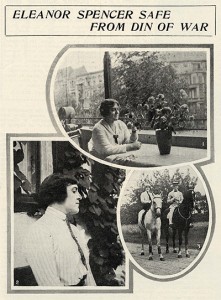 SAFE from the din of war the American pianist, Eleanor Spencer, is by this time at the seashore resort, Scheveningen, in Holland. Miss Spencer was at Bad Nauheim for the month of July. Leaving there she traveled from Mainz to Rotterdam by the Rhine steamer, enjoying the beautiful Rhine trip, thence to The Hague.
SAFE from the din of war the American pianist, Eleanor Spencer, is by this time at the seashore resort, Scheveningen, in Holland. Miss Spencer was at Bad Nauheim for the month of July. Leaving there she traveled from Mainz to Rotterdam by the Rhine steamer, enjoying the beautiful Rhine trip, thence to The Hague.In a letter to a friend in New York Miss Spencer told recently about how she had sat for a bas-relief, done by Johannes Koedding, a noted German sculptor at the University of Siessen. She has also devoted some of her time to examining new piano compositions of the modern school, which have been brought to her attention, and will doubtless add several of them to her repertoire for her second American tour which opens in the Fall. In spite of her reverence for the classics, Miss Spencer has shown interested encouragement of modern composers, such as Cyril Scott and Scriabine, by placing their works on her recital programs.
War Won’t Interfere with Dallas Season!By ROBERT N. WATKINS, Dallas Manager of Concerts[To the Editor of Musical America]Dallas,. Tex., Aug. 15.−ln my opinion the European war will not interfere with musical affairs in this section to any appreciable extent. The outlook is good for the coming musical season in Dallas. In addition to visits of artists and orchestras, Dallas will likely have a spring pageant, celebrating Texas histtorica1 events.Milwaukee Expects Successful SeasonBy CLARA BOWEN SHEPARD, Manager of Milwaukee Concerts[To the Editor of Musical America]Racine, Wis., Aug. 15.−Answering your telegram relative to the effect of the European war on musical conditions in Milwaukee and vicinity, will say that I have booked Emmy Destinn and Gilly, Harold Bauer, Helen Ware, Zimbalist, Alma Gluck, Lhevinne, Flonzaley Quartet, Samaroff, Kneisel Quartet, and. Arthur Shattuck, and am anticipating a successful season.Finds Sanguine Spirit During Summer TourBy MAY BEEGLE, Pittsburgh Concert Manager[To the Editor of Musical America]Saratoga Springs, N. Y., Aug. 17.−I am doing Summer resort work, and have not been in touch with the Pittsburgh situation during the Summer. However, everywhere I have been on my tour since the European strife started everyone is optimistic as to the musical outcome, and the impression is that most of' the big artists will be here in due time, or with little delay. Moreover, failure of some of the artists to come may be an opportunity of discovering new talent and stars at home.Enough Talent Here for New OrleansBy HARRY BRUNSWICK LOEB, Concert Manager, of New Orleans[To the Editor of Musical America]



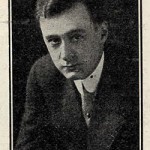
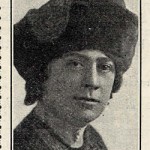
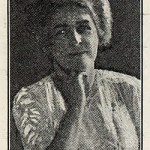
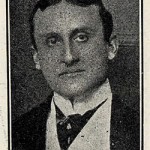

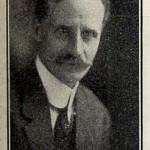
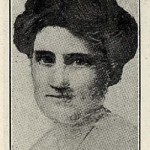
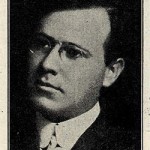
 RENT A PHOTO
RENT A PHOTO





